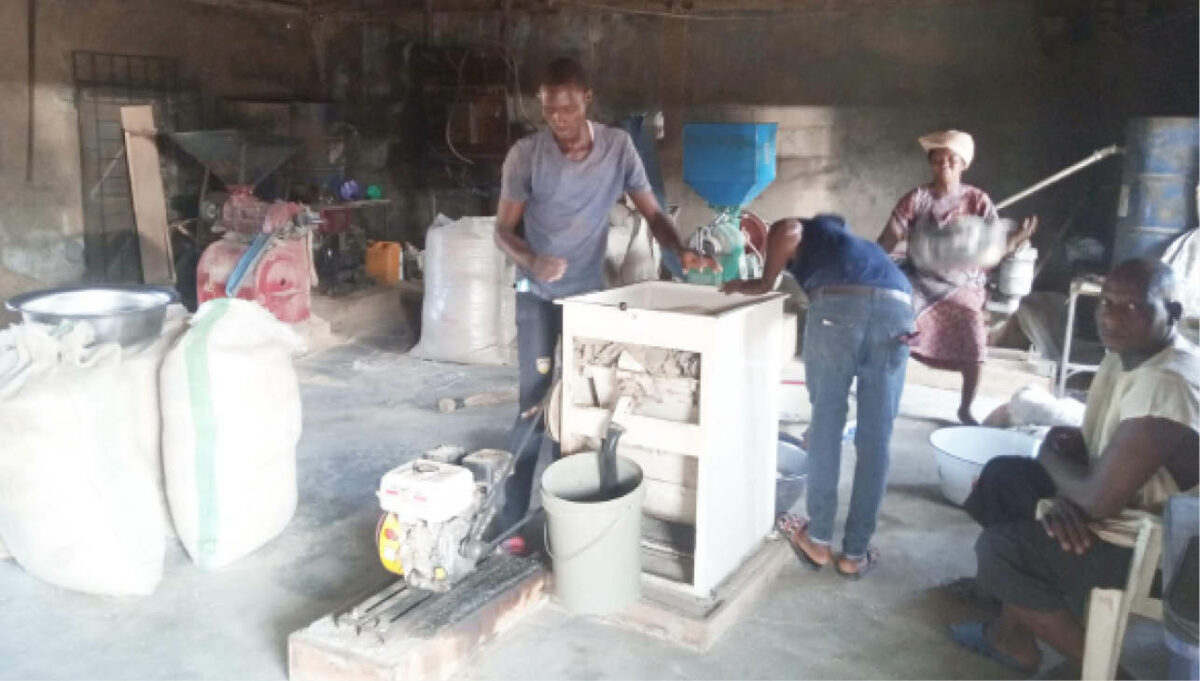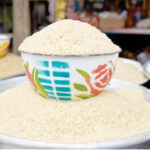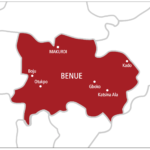Local millers in Benue State are gaining prominence in the small-scale industry following the closure of Nigeria’s land borders by the Federal Government.
Today, the local millers have not only increased production, they now confidently rely on the rice value chain for survival despite certain challenges still trailing the industry.
- We’re Reinventing Northern Nigeria’s Rich Heritage- Director, Arewa House
- Nigeria Lacks Enough Personnel To Guarantee Security – Akinyemi
Our correspondent reports that local rice millers and sellers in Otukpo, Gboko and Makurdi areas of the state were making brisk businesses even in the absence of sophisticated equipment to improve on a development paddy processing.
At the 34-year-old Wadata rice mill vicinity, chains of workers were seen doing their bits in processing rice to its finished stage for sales to consumers, some of whom were already bargaining for their preferred choice to take home.
A young entrepreneur, Ichor Michael Tersoo, who runs a mill at the Wadata rice mill in Makurdi, opined that the business seemed fair even though, the several months of lockdown occasioned by COVID-19 pandemic impacted negatively on the sector at the early part of this year.
Tersoo, a processor, said though there were no actual indicators to determine output of rice production in the state, it was glaring that there had been increase activity in the sector since the Federal Government’s ban on importation of rice to the country which had in no small measure boosted the value-chain activities of local rice production in the state.
But he lamented that the activities of big companies in the rice industry in the state were affecting the small-scale sectors such as his, citing instances with big companies who he alleged besieged the rural areas often in January to mop up paddies from farmers needing money for children school fees.
“They usually take advantage of the farmers to buy the paddy at cheaper rates during that period of the year when farmers have just harvested their rice.
“For example, this year, a company bought most of the paddy from the rural farmers at N15,000 per a 100kg bag and by April, the same quantity was sold for N23,000. This weighs down on SMEs like mine who don’t have huge capital to do the purchasing like the big companies.
“Besides, the big companies through hoarding of the commodity create monopoly in the market and therefore control the pricing,” Tersoo posited.
For another miller, Comfort Ujah, before the policy came into place, the local rice farmers, millers and sellers had suffered losses severely because they did not get value for their produce.
Ujah however believes nothing much had changed at the Wadata rice mill unless the state government considers moving all the millers in Makurdi to include North bank axis, Wurukum and Wadata to a single permanent site where all buyers would converge to create a bigger market for local rice.
“Due to the COVID-19 this year, we (farmers, millers and sellers) have not really gained from our produce/production. We are doing more than before but patronage is low.
“Nigerians now know the value of locally produced rice and they also prefer it to the foreign rice, but no money for them to buy. It’s costlier now than before. We are just managing to survive as we sell a 25kg of bag at N10,000 now as against N12,000 last month,” she said.
Ujah said the prices of rice had continued to rise from within the period of land borders closure in early 2019 that a 25kg bag of rice which before then sold at the mill for N4,500, then to between N6,500 and N7,000 depending on the grade and now between N10,000 and N12,000 amid challenges of high taxes by the state’s board of Internal Revenue.
“Government hasn’t been helping us with anything at Wadata rice mill. They only come to collect big taxes. I borrowed money for this business which I’m doing to survive with my husband and children, then the government comes and collects everything. How then will I pay back the loan?
“Government should give us loan to make this local rice business thrive and of higher standard. They should give all of us in Makurdi a common site just like what is obtainable in Otukpo and Gboko to boost our market because we don’t have enough buyers here. I rent this building for business at N150,000 per year but if government gives us a site, I will be able to put up my own structure,” Ujah concluded.
The state commissioner for agriculture, Dr. Timothy Ijir could not be immediately reached for comment up to the time of filing the report.

 Join Daily Trust WhatsApp Community For Quick Access To News and Happenings Around You.
Join Daily Trust WhatsApp Community For Quick Access To News and Happenings Around You.


